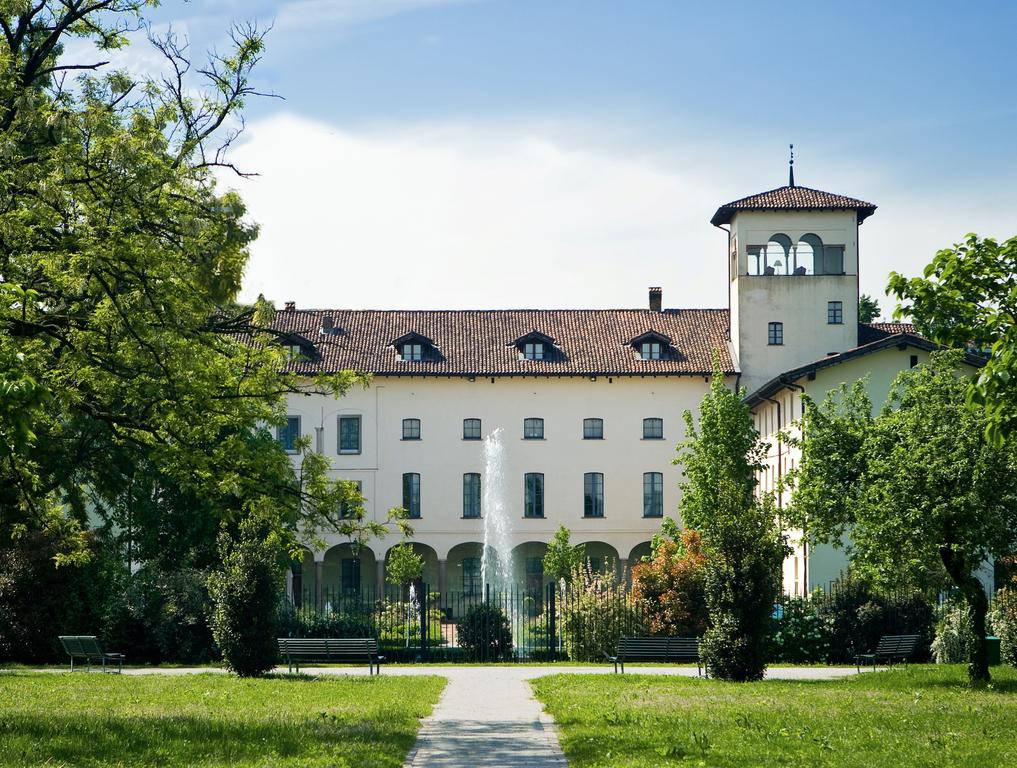2019 First Prevent For Work Symposium & Ideas Contest
FIRST P4WORK IDEAS CONTEST.
Ideas Contest Winner and Participant Videos
The Contest:
The objective of this Ideas Contest is to promote innovative ideas in the area of Prevention of Musculoskeletal Disorders.
The Prevent4Work Consortium is looking for new ideas that can be developed through educational material to help health professionals and workers to increase their knowledge and understanding in this topic.
Everyone can produce and send his video to participate in the p4work Ideas Contest.
From all the videos submitted, 10 videos will be preliminary chosen, and then viewed at the p4work Milan Symposium. One of them will be the winner and will receive the Ideas Contest prize.
FIRST P4WORK SYMPOSIUM
P4W is an european union financed project under the Erasmus+ programme, entrusted to an international consortium of companies and universities with the aim of establish a network between academic/higher education world, work health-related insitutuions, health technology enterpries and companies from different sectors to develop innovative educational programmes, high quality evidence-based material and actions that can be implemented in the EU to prevent and manage Work-related MusculoSkeletal Disorders (WMSDs)
PROGRAM
Friday 15th November
- 13:30 Registration
- 14:00 Introduction and Welcome: Dr. Pedro Berjano
- 14:15 Project Presentation: Dr. Pablo Herrero
- 14:45 First P4W results: “Education to manage work-related muskuloskeletal pain”, Dr. Thorvaldur Skuli Palsson
- 15:15 Keynote Speaker 1: “Addressing psychological risk factors with early interventions: The tale of two controlled studies.”, Dr. Steven Linton
- 16:15 Ideas Contest: Presentation of selected Ideas
- 16:45 Break
- 17:15 Keynote Speaker 2: “Objectively measured physical behaviour and musculoskeletal pain”, Dr. Morten Villumsen
- 18:15 Round table with keynote speakers and experts in P4Work:
- Pedro Berjano
- Morten Hoegh
- Thorvaldur Skuli Palsson
- Pablo Herrero
- Steven Linton
- Morten Villumsen
- 19:00 Awarded Ideas
- 19:30 Symposium Conclusions
SPEAKERS AND EXPERTS
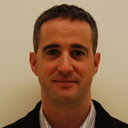
Dr. Pablo Herrero is Head of Research at iPhysio Research Group and Lecturer at San Jorge University. He holds a doctorate in Physical Therapy from Zaragoza University (Spain) with European Mention after spending a research stage at Keele University (UK). Dr. Herrero is specialist in invasive techniques, teaching about dry needling for the treatment of myofascial pain at pre-graduate (San Jorge University) and post-graduate courses in different countries.
He is the author of DNHS® technique and method, a dry needling technique to treat spasticity, which has been expanded to different countries all through the world. He is also inventor of the patented 3TOOL®, an innovative tool to help physios with treatments and also for self-treatment.
He is also President of the Association for Research in Motor Handicap (AIDIMO) and Editor-in-Chief of the Journal of Invasive Techniques in Physical Therapy.
He has experience in European projects related to technologies for rehabilitation, leading the project “3TOOLing your Health” which ended in a platform to prescribe therapeutic exercises to patients remotely and to monitor their evolution (see www.hefora.com) and he is currently leading the European Project Prevent4Work, awarded with 898476€ for the years 2018-2021 with European SMEs, enterprises and Universities.
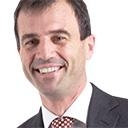
The entirety of his University formation took place in Spain, his home country: He conducted his university studies in Medicine in Granada, his Specialization in Madrid, and his Doctorate in Research in Salamanca. He began is clinical activity as an Orthopedic and Spine Surgeon in Madrid. Since 2003 he’s been living and working in Italy. Present Director of the Spine Surgery Division of The Orthopedic Clinic at the IRCCS Galeazzi Orthopedic Institute of Milan, he also works privately at the Columbus Clinical Center in Milan, the Rome American Hospital, and in Locarno, Switzerland he is the Head of Spine Surgery at the Santa Chiara Clinic.
For many years he’s been invited as a consultant surgeon to some of the most renowned national and international centers, such as: Les Hôpitaux Universitaires de Genève (HUG), the Lindenhofspital in Bern, the Instituto Ortopedico Rizzoli in Bologna, the Policlinico Gemelli in Rome, the San Camillo Hospital in Rome, the Molinette Hospital in Torino, the Regional Center for Spine Surgery in Schio (Vicenza), the Giovanni Bosco Hospital in Turin, the St. Maria della Misericordia Hospital in Udine.
He is an active member of the International Scientific Community: He participates in the research and development of new minimally invasive surgical techniques for the spine. Since 1996, he’s been a pioneer in the use of microsurgery techniques, thoracoscopic and laparoscopic, percutaneous technique for spine and kyphoplasty. Since 2009 he’s been successfully applying the latest minimally invasive techniques to complex procedures, including the XLIF technique for the treatment of lumbar pain, adult spinal deformities, core compression, and stenosis.
He is a supporter of continual formation in Europe and in the U.S. He conducts practical courses on anatomical models for Italian and foreign colleagues, and he hosts training visits in Italy for international colleagues seeking surgical training. As the conference Chairman, he organizes and leads international seminars and courses. Since 2011 he has been a Lecturer for the Japanese Orthopedic Association.
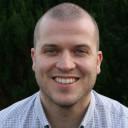
Dr. Palsson is an associate professor at the Department of Health Science and Technology, Aalborg University, Denmark. A physiotherapist by background, Dr. Palsson holds a PhD in Clinical Science and Biomedicine from Aalborg University. Currently, his role at the university is divided into research and teaching at post-graduate level.
His research focus is on musculoskeletal pain, in particular the relationship between clinical symptoms and the sensitivity of pain mechanisms. He has authored several scientific publications on the manifestations of experimental and clinical musculoskeletal pain conditions in collaboration with domestic and international research groups.
In addition to his position at Aalborg University, Dr. Palsson runs a physiotherapy clinic where he works part-time. At the clinic, he sees people with complicated pain musculoskeletal pain conditions. The overall focus of the management strategies at the clinic are on identifying strategies the patients can implement in their everyday to improve their condition.
Dr. Palsson is involved in several international research projects and is currently involved in the ERASMUS+ project: Prevent4Work in collaboration with universities and the industry in Denmark, Spain and Italy.

Steven J. Linton is Senior Professor of Clinical Psychology who has focused his research on the role of psychological factors in the development and treatment of pain. To this end he has conducted several impressive longitudinal and clinical studies to identify key processes in the etiology of chronic pain and disability. This has also resulted in theoretical advancements including the fear and avoidance model and a model for the interaction of emotions and pain. He has also worked diligently to provide interventions. A host of randomized controlled studies lay at the base of these psychologically oriented treatments for patients with severe chronic pain problems including exposure in-vivo and a hybrid, emotion-focused therapy that he has pioneered. Rather than simply treat chronic pain once developed, Professor Linton has also paved the way to an early identification system based on psychosocial factors for patients with back pain in primary care coupled to early, preventative interventions. Most recently his work has focused on implementing very early preventive interventions focusing on communication and problem solving techniques as well as evaluating the effects of a hybrid therapy for patients suffering chronic pain and disability. Consequently, Professor Linton brings clinical and scientific expertise to the conference.
As Senior Professor of Clinical Psychology and a scientific leader for the Center for Health and Medical Psychology his work ranges from teaching clinical and health psychology, to the translation and implementation of new findings, to a vibrant research agenda. He currently supervises several doctoral and master level students. He enjoys the great outdoors, self-sufficient gardening, and running!
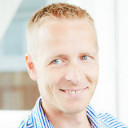
After qualifying as a clinical physiotherapist (1999) and completing several clinical exams, Morten was granted the title of specialist physiotherapist in musculoskeletal physiotherapy (2005) and sports physiotherapy (2006). But it was not until 2010-12 he made an entry to academia when he joined the multidisciplinary Master-of-Science in Pain: Science & Society at King’s College London (UK). From 2015-19 Morten did his PhD in Medicine/pain at Center for Neuroplasticity and Pain (CNAP), Aalborg University.
Having spent more than a decade as clinician, teacher and business developer he decided to focus on improving national and international pain education based on the International Association for the Study of Pain (IASP). Most recently, he was appointed vice-chair of the European Pain Federation’s Educational Committee and has been involved in the development of the Diploma in Pain Physiotherapy and underlying curriculum. Currently he is overseeing the developments of similar programs in nursing and psychology. At a national level Morten has been appointed to several chairs and committees including the Danish Medicine and Health Authorities and the Danish Council of Ethics.
He has co-authored a textbook on pain, and written several book chapters, clinical commentaries and peer-reviewed articles on basic science in relation to pain modulation.
Morten is regarded as a skilled and inspiring speaker and he has been invited to present in Europe, US, Canada and Asia. He is also a prolific debater and advocate of evidence-based and patient-centered approaches to treatment in general. If there was one thing that Morten would like to improve in health care, it would be more focused management for people who live with chronic pain.
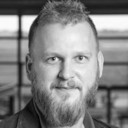
PhD Morten Villumsen works a special consultant at Aalborg Municipality, Denmark, and is external lecturer at Aalborg University, Denmark. His focus is on ensuring that research and development activities are relevant and able to be implemented in a clinical setting.
He has a PhD in ergonomics on the association between forward bending and low back pain. Morten Villumsen is a specialist in technical measures of physical behavior with special interest in musculoskeletal pain.
He has been working on the DPhacto cohort in Denmark regarding objective measures of physical behavior among blue-collar workers. He has also been working on the Horizon2020 projects selfBACK in Norway. Further, he has been involved in the European projects Prevent4Work and BACKup.
ABOUT THE SYMPOSIUM
P4work first symposium will take place at Grand Hotel Villa Torretta, Curio Collection by Hilton, located at Via Milanese 3, 20099 Sesto San Giovanni, Italy
More Info Here: https://www.booking.com/hotel/it/villa-torretta.en-gb.html
Dating back to the 17th century, Villa Torretta is an impressive mansion located next to Milan’s Parco Nord and 5 minutes’ walk from Bignami Metro. It offers spacious elegant rooms, free parking and good public transport links.
This castle-like building has its own park and an impressive arched courtyard. Il Vico delle Torretta restaurant is on the top floor and serves a buffet breakfast. From Monday until Friday it offers Italian and Milanese cuisine at lunch and dinner.
Rooms here have a classic design with luxurious fabrics and dark-wood furniture. All air-conditioned, they also feature free internet access and satellite TV.
- To increase awareness of work related musculoskeletal disorders
- To provide a platform for experts to share and discuss the available evidence on how to manage work related musculoskeletal disorders
- To present new ideas on how to address work related musculoskeletal disorders
The symposium will take place on November 15th, 2019 in the city of Milan.
All those present at the symposium will receive a certificate of attendance.
The results of this symposium will be published and will help with the progress of the following stages of the p4work project.
We are grateful for your future attendance and participation to the symposium.


